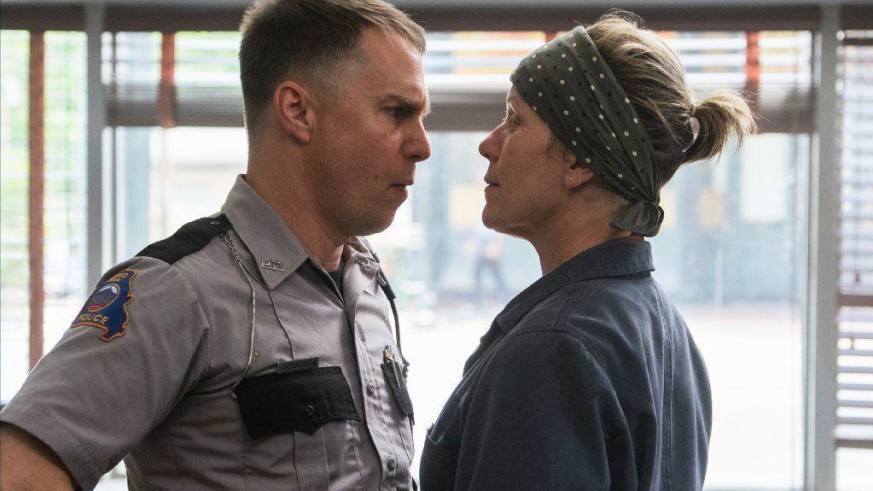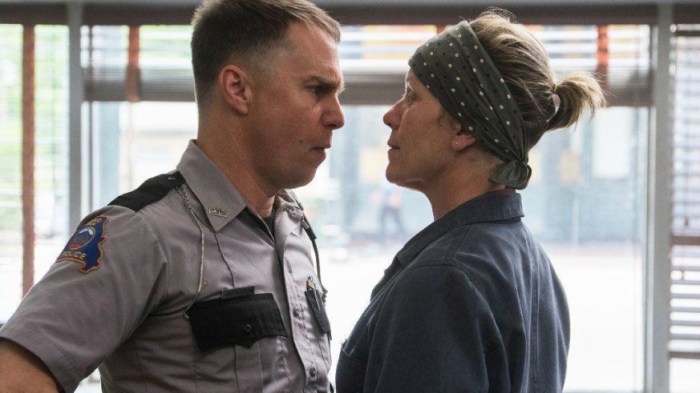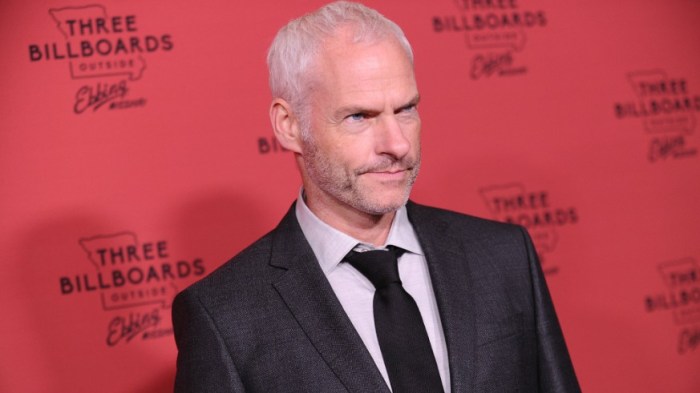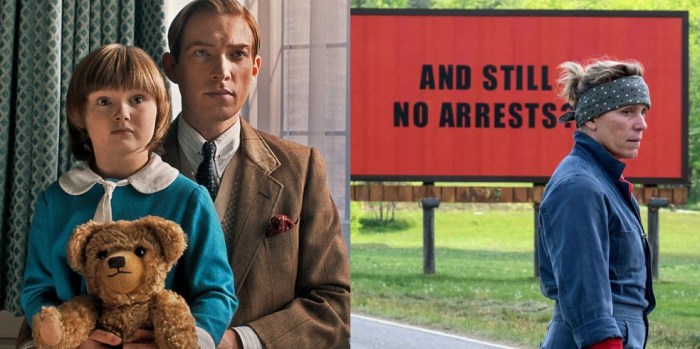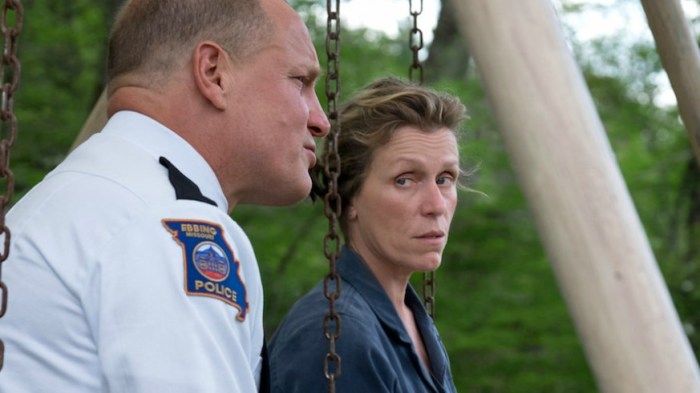Words are rather important to Martin McDonagh.
That’s what you’d probably expect from a multi-award winning playwright, screenwriter, and director. But for “Three Billboards Outside Ebbing, Missouri,” his third film as a director after “In Bruges” and “Seven Psychopaths,” McDonagh was so concerned about the flow and rhythm of its title that he went as far as to invent a town.
“It had to be one of the southern states, one of the old thirteen states for the race angle to have the most impact, and then after that it was about the syllables,” McDonagh explained when I talked with him earlier this week.
It was obvious from the first moment I sat down with McDonagh that he was in a jubilant mood. Which is hardly surprising considering the avalanche of critical acclaim that “Three Billboards In Ebbing, Missouri” has received since it premiered at the Toronto Film Festival back in September. McDonagh admitted that the “experience” of making the film, and the praise he has received, has now made him “feel like a director for the first time, instead of a good writer who happens to direct a great script. This is the first time I feel like two in one.”
McDonagh insists he has “always been proudest as a writer,” and will still refer to himself as one when asked for his occupation, but he also believes he has a leg up on other directors because of how he treats actors.
“With my plays I had 10 years of getting to know actors and getting to like the process. I knew actors and I definitely know how to talk to them. And I like them. The biggest thing is to like actors. I think too many directors don’t. And it shows. No names mentioned.”
McDonagh’s decision to make “Three Billboards Outside Ebbing, Missouri” his third film came out of a desire to “write a strong female lead for a film,” as he thought his prior releases “ were very, very male centric,” something that his plays could never be accused of. The germ for the story came 17 years earlier, though.
“I saw something similar to what we see in our billboards about 17 years ago on a bus through the southern states of America. The bus was going down to Mexico and Nicaragua, and it went from Baltimore. In a field I saw two billboards. The first one had a message on it that was very similar to ours, which called out the cops for a lack of being able to solve a horrible crime.”
“I put those things together, and decided that it was a mother who put them up, and Frances’ mother came out. It stayed in my mind because it was so painful and horrific and shocking. I didn’t do anything for about 10 years. And then about 8 years ago I was like, ‘Where does that pain come from? What kind of rage?’ And bravery to put something up like that against the cops so publically. And so Mildred just leapt off the page.”
McDonagh had “a ball writing” “Three Billboards,” especially because he had pushed himself to write the strong female character that “the film community doesn’t really pay any attention to.”
“It is not just that she is a strong woman, but she is outrageous,” McDonagh continues. “As a character you are like, ‘What the fu++ is she going to do next?’ It is joyful. She takes down a dentist and a priest, she is never scared of the cops. So you never have to follow the rules of a situation, and how you would be. In fact you can be what you hoped you would be in that moment if you had the courage.”
Even though Frances McDormand plays a grieving mother intent on getting justice in “Three Billboards Outside Ebbing, Missouri,” McDonagh made sure that the character, and those around her, were neither all good or all bad.
“They can blur. This isn’t a simple heroic female lead. Because she is not heroic in a bunch of places. But that’s much more rounded and exciting anyway. You can’t defend kicking kids in the balls, but it is funny and exciting. A male character in that role you wouldn’t want to get away with it, but there is something hilarious about her doing it.”
“That’s part of the fun of the whole piece. You think you’re on her side, and we are on her side, but then … and then we think we’re completely against Sam and then there’s a change and that happens at the same time so it takes us to new places. And that’s what is kind of exciting.”
“And that’s what people have taken from it. Firstly people think it is all her film, and it is not exactly. And secondly you think you are on safe ground about who is the hero and who is the villain and you are not really. And that’s more hopeful than a simple black and white hero and villain story.”
In McDormand McDonagh clearly found a formidable ally as an actress, someone who pushed him to new heights and challenged him, because while he describes her as “great” and “intelligent” he also calls her “feisty” and jokes about their “first disagreement.”
“I feel like she is now in my gang, and my repertory company,” McDonagh declares, teasing that he wants to work with her again. Considering the plaudits that “Three Billboards Outside Ebbing, Missouri,” has been picking up, and the fact it has already been touted for Oscar glory, it would be a crime if they didn’t.

